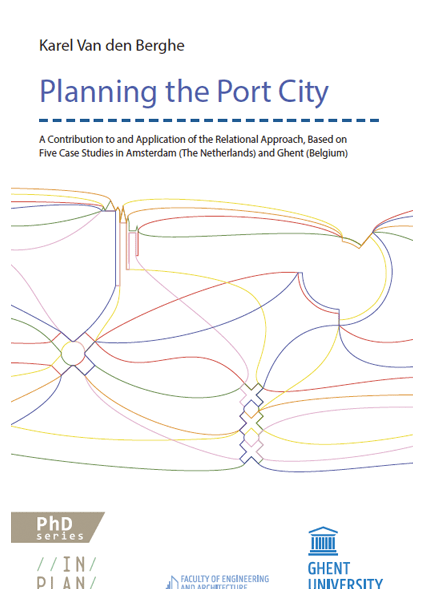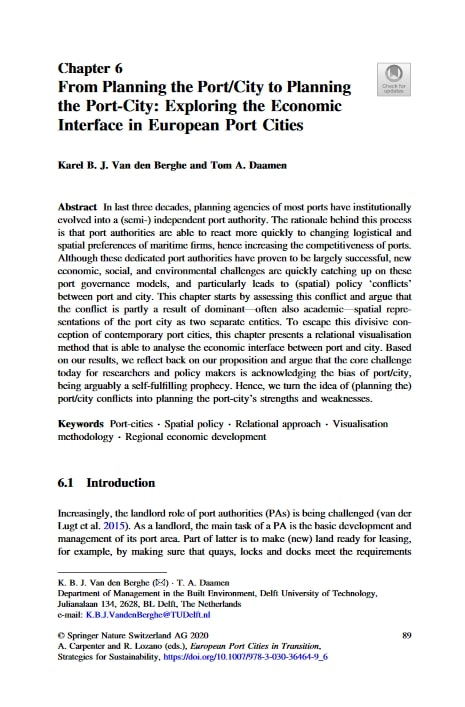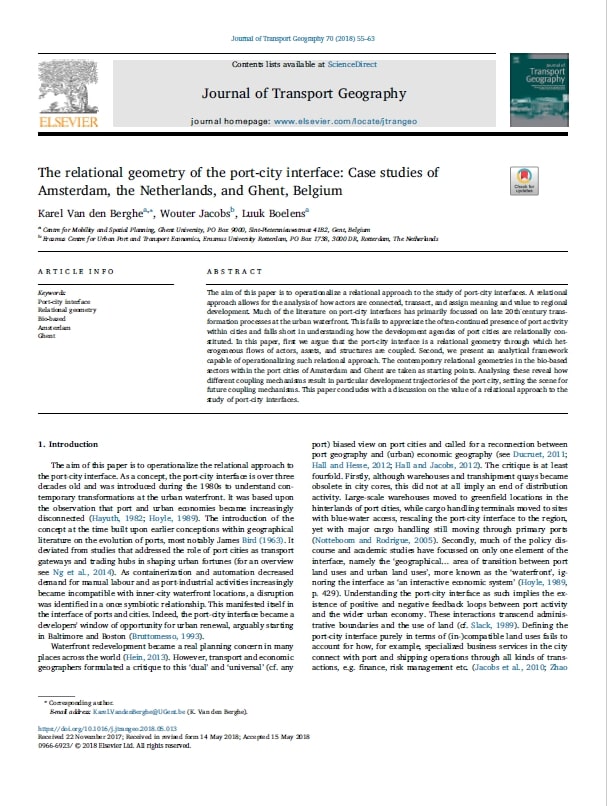A contribution to and Application of the Relational Approach, Based on Five Case Studies in Amsterdam (NL) and Ghent (BE)
Karel Van den Berghe’s PhD research deals with the relational interpretation of port cities. In particular, the focus is on the interaction between the urban and maritime economy. The proposition is that the port city interface is an economically interactive system. The PhD deals with five economic case studies (steel sector, car sector, biobased sector) in the port cities of Ghent (BE) and Amsterdam (NL).
In the theoretical chapter, the relational approach is critically considered and the analytical framework is presented with which the tactical, strategic and structural coupling mechanisms can be analyzed. Next, a 3-step conceptual framework is presented. In step 1, the port city interface is visualized from a database model according to a newly developed visualization methodology. Step 2 examines why we observe this port city interface in such a way and step 3 examines how the actors have shaped the policy agenda in this process.
The PhD research concludes that the port city interface is of great importance to both the urban and maritime economy. While until now the port city interface is mainly planned to avoid a (spatial) conflict between the port and the city, it is argued that this (relational) space should be used very strategically. This will allow existing regional economic networks to be strengthened and better anchored, leading to long-term regional economic development.


